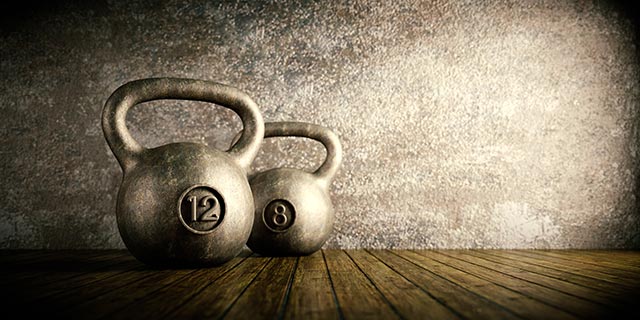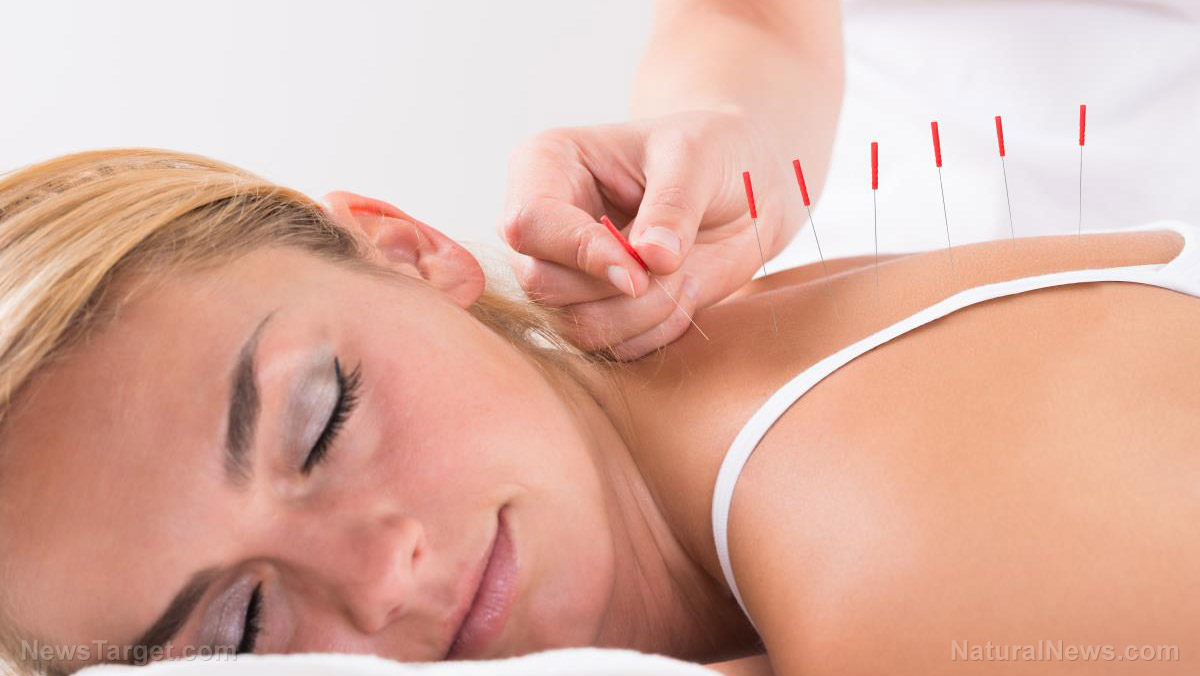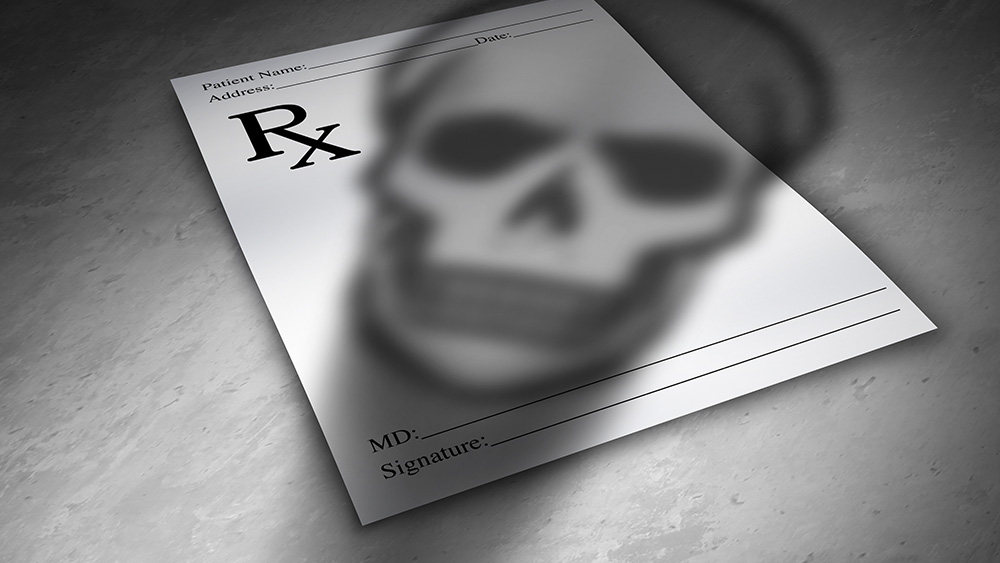Relieve menopause symptoms with acupuncture
07/09/2019 / By Edsel Cook

Acupuncture offers an alternative approach to improving the quality of life of menopausal women. A Danish study found that a brief course of the traditional Chinese medicinal treatment could reduce some of the symptoms of menopause.
Current treatment methods for menopausal symptoms include hormonal replacement therapy and non-hormonal approaches. Both types produce adverse side effects.
Hormone-based treatments may increase the risk of breast cancer. Meanwhile, hormone-free approaches can cause dizziness, fatigue, nausea, and sleep disturbance in patients.
Due to dissatisfaction with pharmaceutical drugs, more and more patients are turning to alternative therapies to get relief from the symptoms of menopause. Acupuncture is one of the most popular options available.
Acupuncture is a form of traditional Chinese medicine prescribed to treat various diseases. Over the years, scientists have studied its effects on chronic pain, depression, epilepsy, schizophrenia, and other health conditions.
A team of researchers from the University of Copenhagen (UCPH) and the University of Southern Denmark (SDU) tested the effectiveness of acupuncture in reducing the symptoms of menopause. Their study followed up on earlier investigations that focused on acupuncture’s potential as an alternative remedy for menopause symptoms. (Related: Dealing with “The Big M”: 7 Lifestyle changes that can help fight the symptoms of menopause.)
A short course of acupuncture treatment may reduce hot flashes and other menopausal symptoms
The researchers chose hot flashes as the primary outcome. A long-lasting and distressing symptom of menopause, hot flashes affect three out of every four menopausal women.
The power of the elements: Discover Colloidal Silver Mouthwash with quality, natural ingredients like Sangre de Drago sap, black walnut hulls, menthol crystals and more. Zero artificial sweeteners, colors or alcohol. Learn more at the Health Ranger Store and help support this news site.
The study involved 70 women who were suffering from moderate-to-severe symptoms of menopause. Half of the participants went through 15-minute-long acupuncture sessions once a week. Administered by veteran acupuncturists, the alternative treatment lasted for a total of five weeks.
The remaining participants served as the control group; they did not receive any treatment until the 6th week.
All the participants answered a questionnaire that judged the severity of their menopausal symptoms. They did this before the experiment began and after the third, sixth, eighth, 11th, and 26th week. Besides hot flashes, the questionnaire also covered other common symptoms, such as memory changes, skin problems, sleep problems, and urinary and vaginal symptoms.
According to the researchers, members of the acupuncture group experienced fewer hot flashes by the third week of treatment. After six weeks, 80 percent of the treated participants were convinced that they benefited greatly from the sessions.
In addition, acupuncture not only decreased the frequency of hot flashes, it also reduced the frequency or severity of other symptoms. The participants experienced improvements in their mood, hair and skin health, sleep quality, and sweating.
Does acupuncture achieve its health benefits through the placebo effect?
Acupuncture research currently lacks an appropriate placebo to use in order to rule out the placebo effect. The UCPH-SDU study encountered the same problem.
The researchers believe that sham acupuncture might serve as a good placebo. Sham acupuncture resembles the real deal, but in reality, the acupuncturist either avoids placing needles in the right acupuncture points or doesn’t pierce the skin with the needles.
However, a 2012 study by a researcher from the Kristiania University College in Norway attributed significant effects to sham acupuncture. Since a placebo needs to be inactive, sham acupuncture might be unsuitable for the role.
“Although [the acupuncturists] were instructed to behave neutrally, their beliefs in acupuncture could have affected their interaction with the participants and possibly have intensified a placebo effect,” the Danish researchers admitted.
Despite this, the results of their study still suggest that acupuncture can be an alternative means of improving the quality of life of menopausal women. Regardless of whether the treatment achieves success due to the placebo effect or not, the fact remains that it is still a useful option. It also comes with very few risks and little to no side effects.
And since it managed to convince patients that it could alleviate hot flashes and other symptoms of menopause, it has served its purpose.
Sources include:
PDFs.SemanticScholar.org [PDF]
Tagged Under: acupuncture, aging, alternative medicine, benefit of acupuncture, Chinese medicine, hot flash, hot flash treatment, hot flashes, Menopause, menopause symptoms, natural cures, natural medicine, natural remedies, Naturopathy, placebo effect, quality of life, remedies, research, sham acupuncture, TCM, traditional Chinese medicine, women's health



















